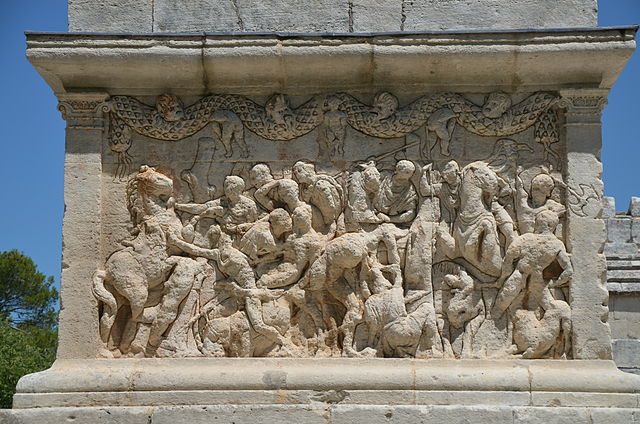The pater familias, also written as paterfamilias, was the head of a Roman family. The pater familias was the oldest living male in a household, and could legally exercise autocratic authority over his extended family. The term is Latin for "father of the family" or the "owner of the family estate". The form is archaic in Latin, preserving the old genitive ending in -ās, whereas in classical Latin the normal first declension genitive singular ending was -ae. The pater familias always had to be a Roman citizen.
Bronze genius depicted as pater familias (1st century AD)
Citizenship in ancient Rome was a privileged political and legal status afforded to free individuals with respect to laws, property, and governance. Citizenship in ancient Rome was complex and based upon many different laws, traditions, and cultural practices. There existed several different types of citizenship, determined by one's gender, class, and political affiliations, and the exact duties or expectations of a citizen varied throughout the history of the Roman Empire.
Emperor Caracalla
Relief showing a Roman marriage ceremony. Museo di Capodimonte
The Mausoleum of the Julii, located across the Via Domitia, to the north of, and just outside the city entrance, dates to about 40 BC, and is one of the best preserved mausoleums of the Roman era. A dedication is carved on the architrave of the building facing the old Roman road, which reads: SEX · M · L · IVLIEI · C · F · PARENTIBVS · SVEIS Sextius, Marcus and Lucius Julius, sons of Gaius, to their forebears It is believed that the mausoleum was the tomb of the mother and father of the three Julii brothers, and that the father, for military or civil service, received Roman citizenship and the privilege of bearing the name of the Julii




